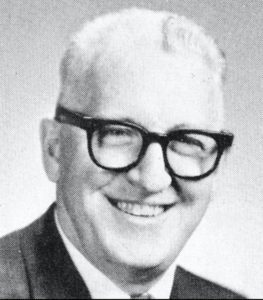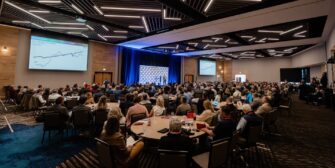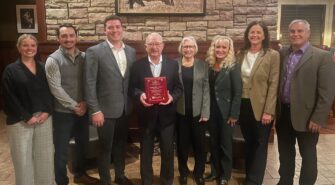Preview a ‘taste’ of family business at one-of-a-kind dinner
Recent News
The oldest family-owned business in Watertown has a history of overcoming challenging times.
Since 1911, appliance company Dugan Sales & Service has navigated two world wars, the Spanish flu pandemic, the Great Depression, the Great Recession and now COVID.
For Jeremy and Erin McBurney, fourth-generation owners, 2020 will be especially memorable. It was their first year as majority owners of Dugan and a powerful introduction to the unexpected situations business owners can encounter.
Erin grew up around the family business — her father, Jim, was its third-generation owner. Jeremy grew up in Aberdeen and went into banking. The couple moved to the Twin Cities but decided to return and carry on the business legacy.
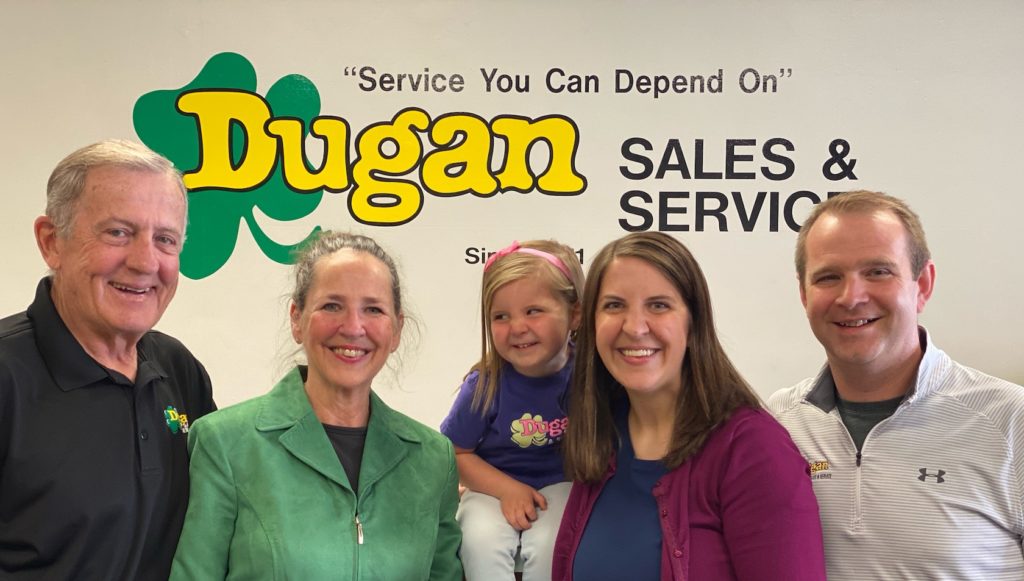
We sat down with Jeremy McBurney to learn more about the family business journey and how this new owner tackled 2020.
What initially brought you back to South Dakota? Was that always the plan?
It certainly wasn’t always the plan. We had a pretty clear-cut path for our careers in Minneapolis. We enjoyed the idea of a larger city, Erin enjoyed teaching in South Minneapolis, and I was making my way in retail banking. Jim, my father-in-law, had mentioned the idea of us moving back to join the business on a few occasions, but we always politely declined due to our focus on our respective careers in the Twin Cities. By 2015, it had become a grind living in a larger city — the commute, long hours, corporate America. It can be a little demanding, and you don’t always get to see the fruits of your labor. After some back-and-forth discussion with Erin and a pro/con list, we decided it made sense to explore the opportunity of moving back.
We had a conversation with Jim and Jane in late 2015. We agreed on a plan that seemed to make sense for all and made the decision to move back. My first day at the store was July 1, 2016.
How did your transition work? Are there elements that might be helpful to others?
We had a verbal agreement to purchase a percentage of stock annually. The verbal agreement was quickly put on paper, which I think is important. Being able to consult with other individuals whom I’d met through Prairie Family Business Association was super helpful. I learned about the association from a friend of mine who owns a distribution company in Fargo. He encouraged me to “not ask any questions, and just go!” to any events PFB had to offer. I am eternally grateful for his advice regarding this and equally grateful to Prairie Family Business for the insight I’ve gained from my membership.
This year has been an adventure for anyone in business. What has it been like for your family?
It’s been — adventure is probably the best word. 2020 marked my first year as president and majority owner, so I entered January optimistic and excited about the new year and new role. By February, COVID was making headlines in the news, and by March it was here. We just watched the tide roll in without much of an idea of how the next few months would go. We were fortunate to be able to learn from some of our industry partners in states that were affected sooner. Appliances, and appliance servicers in particular, were deemed essential in some of these larger states, so I took some comfort knowing we’d probably be able to stay open at some capacity.
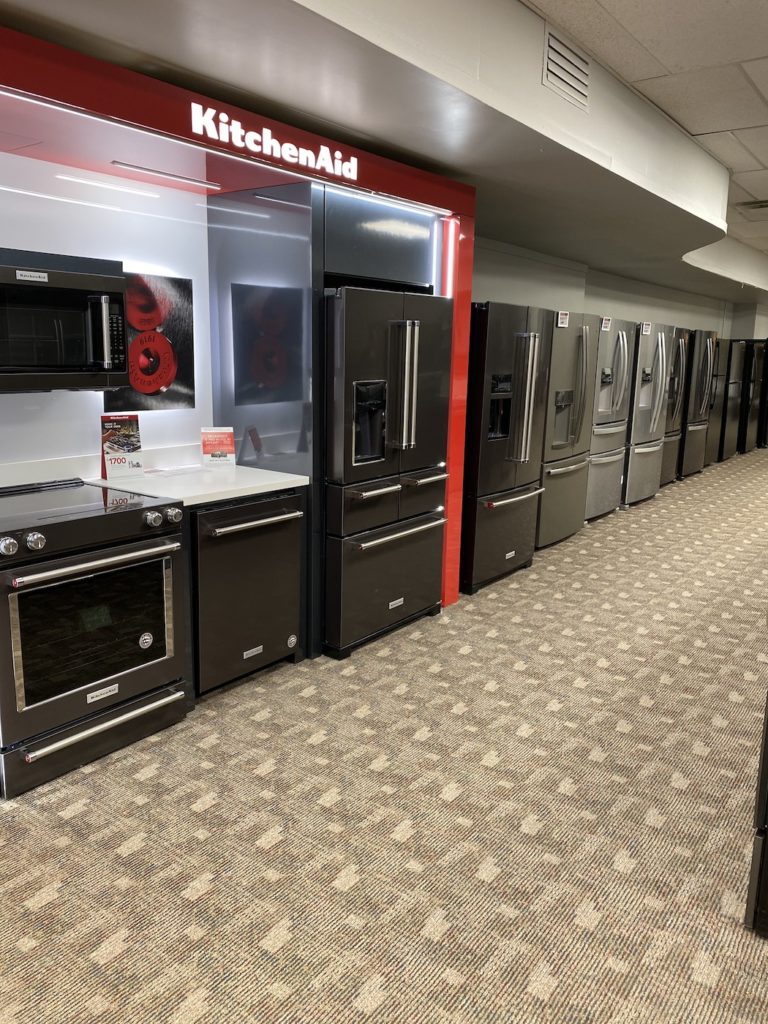
In March and April, we decided to switch to appointment-only for the store and initially feared that decision causing a slowdown in business. We geared up for a slow year, and instead what happened was the exact opposite. I’m assuming that lack of ability to travel and people being at home noticing the appliance that needed repair or replacement resulted in the uptick in business. We reopened fully at the end of April. As a small-business owner, it definitely caused some sleepless nights at first because of fear of lack of business and then due to potential lack of inventory because of the increased volume in business. In retrospect, it all makes sense that we’d be busy, but in the moment we had no idea how business would go.
Have you encountered any supply chain challenges?
Several. It seems like every manufacturer has them, and appliance stores across the country are experiencing similar demand. Every manufacturer has had to deal with shutting down factories, limiting hours, spacing out workers, so there’s been a slowdown in ability to manufacture the product coupled with unprecedented demand. At this point on any new order placed, I’m lucky to have what I order in six to eight weeks. Pre-COVID we could order on Monday and have the product by Wednesday. We are fortunate to be a part of a great buying group with independent retailers like ourselves, and they’ve been good about keeping us in the loop on availability.

Because of our buying group’s insight, we have been able to stay updated on the manufacturing delays. We knew we’d encounter supply chain issues, so I took a chance and loaded up on inventory a few months back. As a result, we haven’t had too many issues with availability. With all the extra ordering, we did run out of warehouse space at the store. This resulted in the purchase of another 10,000-square-foot building in Watertown to warehouse what we have. So far, this has proven to be a good decision for us.
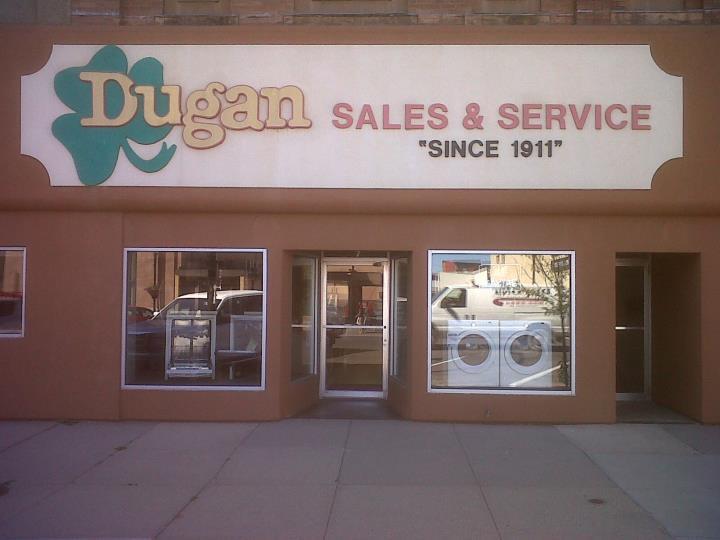
Do you primarily serve the Watertown area?
Historically, we’ve served a 60-mile radius for sales and service. In the last several years, we have branched out. Currently, we are working on projects in Sioux Falls, Rapid City and have completed large multifamily jobs in Rochester, Minn., and Austin, Minn. So our radius has expanded a bit. Watertown is in growth mode as well, and we continue to grow our business here. In addition to the great support of the Watertown community, we have discovered that seeking out these multifamily contract projects in other cities helps hedge against softer retail years.
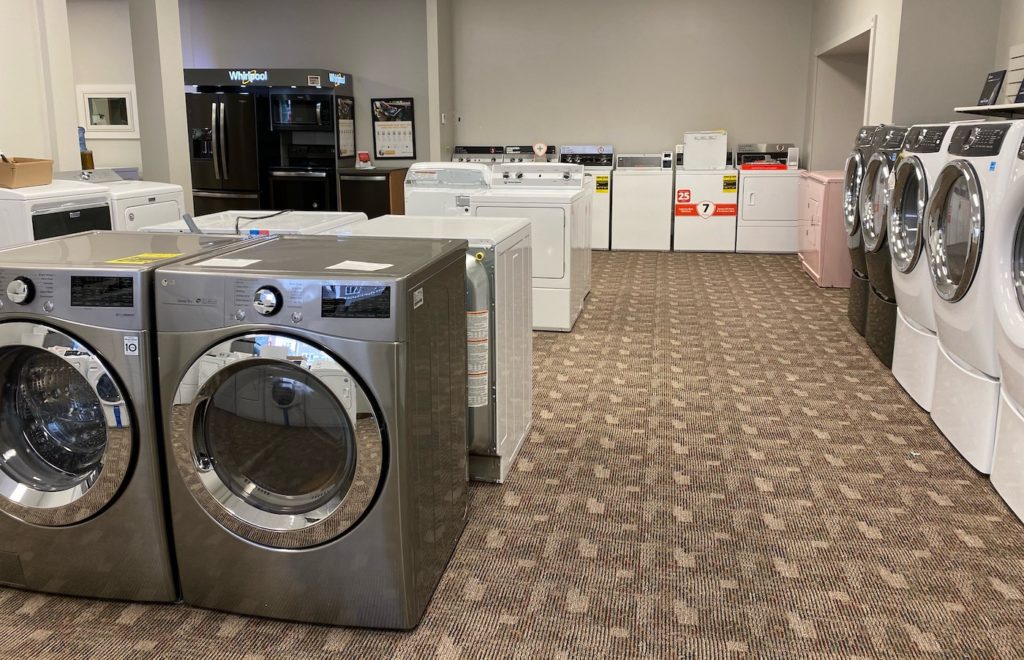
What appears to be trending in a broader sense for your industry? What are you focusing on in your merchandising?
It’s hard to say with appliances; it’s a product that people always need and don’t really think about. Our focus has shifted to trying to capture the millennial customer, utilizing a more comprehensive digital marketing platform. We are seeing things trend more toward the Internet of Things — smart appliances are becoming the new norm whether it’s Wi-Fi connectivity for the range to preheat before you get home or Android systems in your fridge. I think we’ll see more and more connectivity, which is a new challenge for us as a servicing dealer. We know how to fix a compressor on a fridge but not necessarily an Android operating system built into the fridge, so we’ll have to adapt with the times and make sure we’re keeping up.
With more than a century of experience, what kind of advice would you give to other family businesses hoping to achieve similar longevity?
I think it comes back to transitioning with the times. We started as a farm implement company. Henry Dugan made his living selling milking machines until — and this is a true story — Fred Maytag came through Watertown and said he had a new machine that washes clothes. Henry gambled on a new piece of technology, and it obviously paid off. Realizing what this new machine could do, Henry made the decision to completely shift his business to an appliance company.
Bud, Henry’s son, took over during the Depression. It became apparent that the old way of doing business would have to change. Bud was known for presenting a product, and before you agreed to buying it, he would leave and beat you to your house to hook it up. He would tell you “just try it for 30 days.” Appliances were pretty heavy back then, and he knew there was no way to take it out of the house. More desperate times called for innovation.
Jim took over in a time when relationships were key. The internet wouldn’t be a thing for several decades, and he built his customer base exclusively on connections and getting to know each one individually. He is still able to remember customer purchases from 30 years ago. This resulted in unprecedented customer loyalty that spanned 40-plus years.
And now our generation, good, bad or indifferent, has access to all the information they need at their fingertips via their smartphone. Our time is spent researching the product before we ever walk into the store. Because the way the consumer shops has changed, we have had to change as well. So as far as advice goes, I would say that our history shows that longevity stems from our ability to adapt to the customer’s needs as they change. Any business looking to achieve that type of longevity needs to be sure that they are focusing on what their customer is seeking, how they are seeking it and finding the best way to connect with them to deliver it.
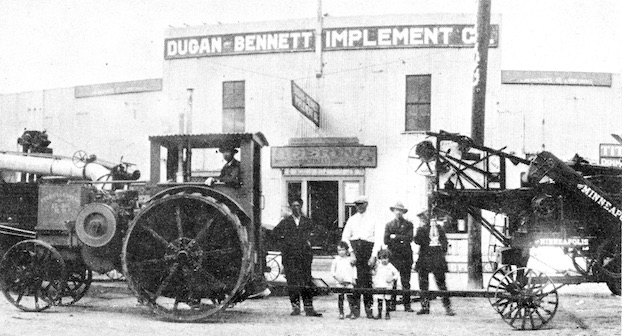
What do you think the future looks like for your business? How do you see the industry evolving and your family continuing to be part of it?
There are certain challenges in retail, the obvious being online shopping. I don’t think we’re quite at the point where people are comfortable purchasing large appliances online. I’m certain it will happen at some point. If and when the online purchasing of major appliances becomes more prominent, I believe that our investment in digital technology will give us the advantage over larger online retailers. We currently are up against brick-and-mortar box retailers and seem to do fine. I’m confident that we will stay competitive as the consumer shifts to online purchasing, provided we make the investment now. We have placed a lot of focus on our digital platform these last few years. Our website is easy to navigate. If the customer wants to make a purchase online with us, they are able to do that today. In addition, the website is designed to draw the customer into our store. We have a great story, and hopefully our digital strategy will help us tell it. I think there are a lot of good years left of in-store shopping, and I still think people want an in-person experience, especially once COVID ends and people feel more comfortable getting out. I think you’ll see a big resurgence in in-store shopping just because people can.
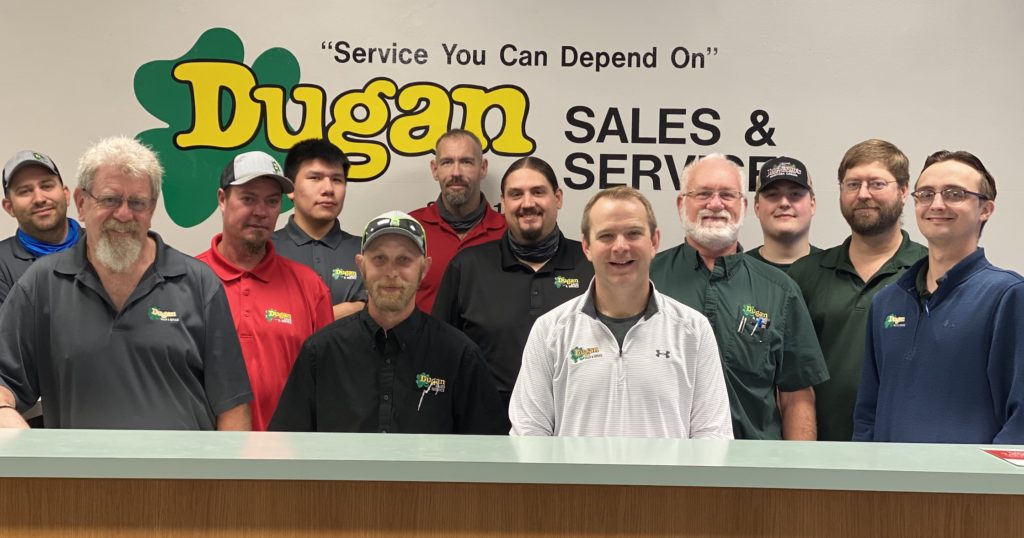
Retail has been great for us, multifamily has been great, and I don’t see us throttling back on either a whole lot. I have worked hard to build a good reputation with multifamily builders to bring in new business for our company and hopefully to give them a competitive choice. We really like the Sioux Falls market, and it wouldn’t hurt to have a physical location there. That’s at the back of my mind. There’s a lot going on right now, and it’s all very good. I’m very optimistic about the next several years.
Looking back on your first year in ownership, are there some takeaways from navigating the pandemic?
I doubt that we will ever have to experience so many challenges in one year ever again. So when we finally get back to “normal,” it will be an easier way of operating the business. We’ll be back to placing an order on Monday and having it on Wednesday. Hopefully, I’ve gained perspective and gratitude. I’m assuming if I can successfully navigate this year, I can successfully navigate any future challenges and probably get more sleep doing it.
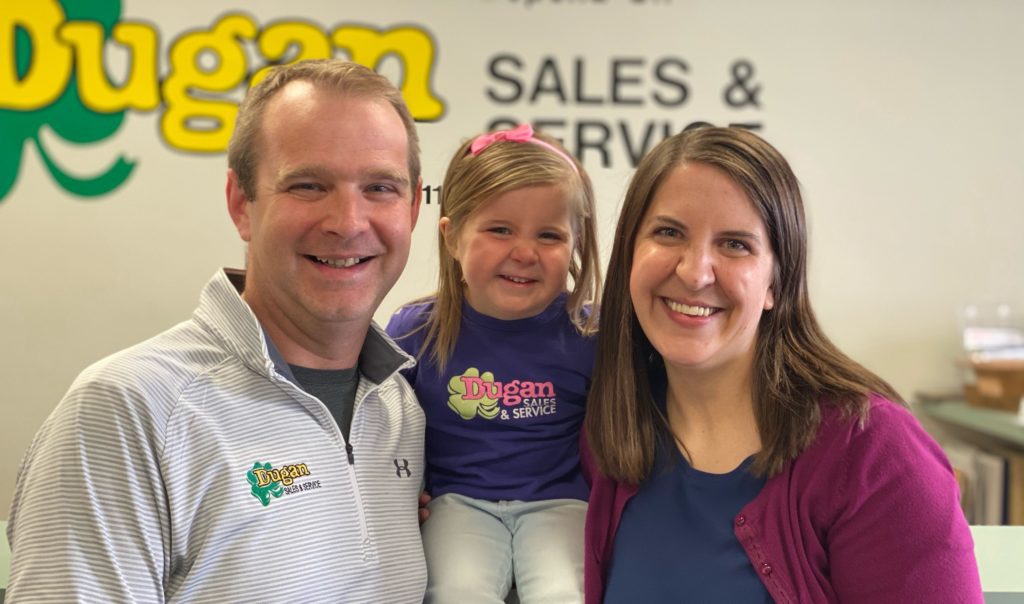
From a personal standpoint, it has taught me to slow down. My wife being a teacher was home from March until September. We kept our 3-year-old daughter out of day care. There was no planning of vacations, no going anywhere, just the three of us. My focus was their safety and making sure the business was running as smoothly as it could. It was a great way to evaluate what’s most important, and that really just comes down to making sure that I make the right decisions each day to take care of my family and the other families who depend on this business.

